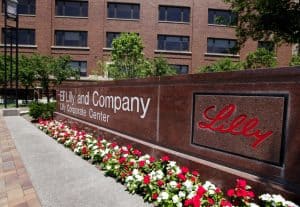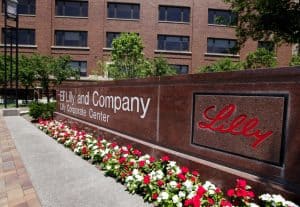Lilly faces substantial costs from US health reform
pharmafile | April 20, 2010 | News story | Sales and Marketing | 2010 financials, Obama, lilly
Lilly expects to lose up to $485 million this year as a direct result of the US healthcare reforms, but acknowledges the changes will improve access to medicines in the country.
It’s the first time the impact of the reforms on the industry has been so clearly spelled out, and Lilly says its 2011 revenues will be hit even harder – possibly by as much as $700m.
The first signs of this were contained in the first quarter figures the company released yesterday (Monday 19 April). Although revenues in the period grew by 9% to $5.5 billion, a one-off tax charge related to the reforms depressed profits by 5% to $1.2bn.
Chief executive and chairman John Lechleiter said Lilly had managed strong operational performance in the quarter even as it began to account for the impact of the reforms.
“We expect that the new US healthcare reform legislation, while not perfect, will help seniors in the Medicare system better afford their prescriptions and will provide greater access to our medicines for millions of Americans who are currently uninsured.
“However, as a result of the new legislation, Lilly will incur substantial costs to our business. The initial financial impact is captured in our first quarter results, while the full-year impact is reflected in our revised 2010 financial guidance.”
The bill includes industry discounts to government healthcare programmes such as Medicare – for the elderly and disabled, and Medicaid – for the poor.
In the first quarter this year Lilly has already been hit by a one-time tax charge of $85.1m, related the prescription drug subsidy of the company’s retiree health plan now being taxable under the reforms.
The company also anticipates the introduction of higher governmental rebates from the industry will further reduce its 2010 revenue by $350-400m.
Lilly’s 2010 top-sellers in Q1
Lilly’s anti-psychotic Zyprexa remained its biggest seller, growing 8% to $1.21bn, followed by pain and anti-depression treatment Cymbalta which grew 13% to $803m.
In the first quarter, Lilly signed a $400 million agreement with its partner Boehringer Ingelheim to re-acquire exclusive rights to develop and market Cymbalta in countries outside the US and Japan. Lilly already has exclusive US rights to the drug.
Gemzar was the biggest loser, with sales of the cancer drug decreasing by nearly a quarter overall due to generic competition in most major markets.
Meanwhile the once-weekly injectable of Byetta, a potential blockbuster in the diabetes market, continues to face regulatory problems, but Lilly is confident the FDA will approve Byetta LAR this year with a submission for European approval expected to be made by the end of the second quarter.
Related Content
NICE RECOMMENDS LILLY’S TIRZEPATIDE (MOUNJARO ®▼) FOR MANAGING OVERWEIGHT AND OBESITY IN FINAL DRAFT GUIDANCE
BASINGSTOKE, 5th December 2024 – Eli Lilly and Company announced today that the National Institute …

Lilly’s COVID-19 drug has EUA revoked in favour of combination therapy
The FDA have revoked Emergency Use Authorization (EUA) of Eli Lilly’s bamlanivimab drug for the …

Lilly’s ulcerative colitis treatment meets all key endpoints in Phase III trial
Eli Lilly’s mirikizumab treatment for ulcerative colitis (UC) patients has met the primary endpoints and …






